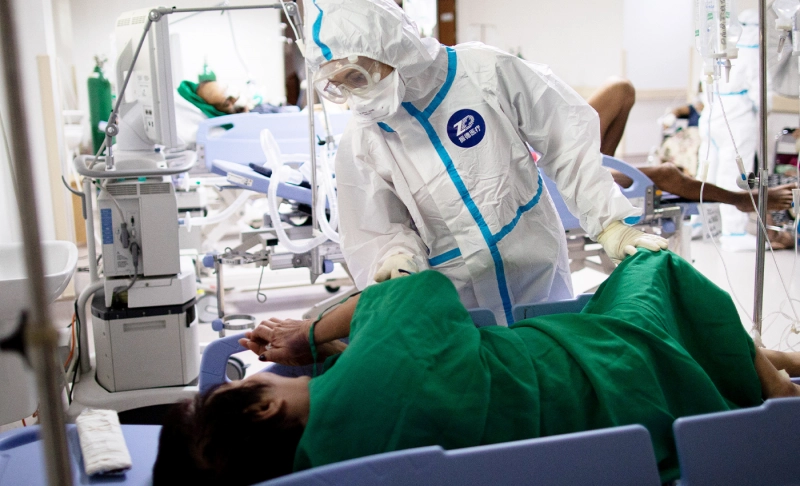By: Ranjini K
January 28 2022

AIIMS Rishikesh has recruited 20 COVID-19 patients with mild symptoms to assess whether chanting Gayatri Mantra leads to better recovery of COVID-19.
AIIMS Rishikesh has recruited 20 COVID-19 patients with mild symptoms to assess whether chanting Gayatri Mantra leads to better recovery of COVID-19.In India, the COVID-19 pandemic is in its second wave, as the government struggles to gain control of the virus. In an effort to fight COVID-19, the Department of Science and Technology (DST) sponsored a study at the All India Institute of Medical Sciences (AIIMS) in Rishikesh to examine whether the Gayathri Mantra, a religious chant, had any effect on COVID-19 patients with mild symptoms. AIIMS, Rishikesh, received the approval of the Indian Council of Medical Research's clinical trial registry. The clinical trial will be conducted with 20 COVID-19 patients with "moderate symptoms." These patients will be split into Group A (Intervention group) and Group B (Control group). Under the supervision of a trained yoga instructor, Group A patients will practice the Gayatri Mantra and pranayama for 14 days in addition to their usual care. Group B patients will receive regular care for the next 14 days. Video-conferencing/Google will be used to deliver Gayatri's Mantra chanting and pranayama guidance. Patients will practice 1-hour Gayatri Mantra chanting and pranayama in the morning and evening in their hospital room or at home for up to 14 days after discharge. By this, they can assess whether there are differences in the groups on time taken to test negative and the length of hospitalization. Patients can also be evaluated to check whether they have anxiety problems or are experiencing reduced fatigue. The recruitment of the patients for the study has already begun, said Dr. Ruchi Dua, pulmonologist and Associate Professor at AIIMS, reports The Hindu. She added that they would measure inflammation via C-reactive protein levels and a standard scale to measure health outcomes over the coming months. The COVID-19 pandemic has given rise to a lot of potentially dangerous misinformation. For reliable advice on COVID-19 including symptoms, prevention and available treatment, please refer to the World Health Organisation or your national healthcare authority. The COVID-19 pandemic has given rise to a lot of potentially dangerous misinformation. For reliable advice on COVID-19, including symptoms, prevention, and available treatment, please refer to the World Health Organization or your national healthcare authority.